How Blockchain is Empowering Content Creators
4 March 2025
Content creation has become one of the most prominent ways for individuals to express themselves, share knowledge, and even make a living. Whether it’s through blogs, videos, music, or art, millions of creators are pouring heart and soul into their work. But, let’s be real for a second: the current system for content creators is far from perfect. Many creators face issues like unfair revenue distribution, censorship, and lack of control over their own content.
Enter blockchain—yes, that same technology behind cryptocurrencies like Bitcoin and Ethereum. Blockchain is not just about currency, though. It’s about transparency, decentralization, and empowering individuals. And for content creators? Oh boy, blockchain is like a breath of fresh air. It’s flipping the script and offering creators new ways to take control of their work, earn more fairly, and engage with their audience.
Let’s dive into how blockchain is empowering content creators and why it might just be the future of content creation.

Breaking Down Blockchain (Without the Jargon)
Before we get into the nitty-gritty, let’s make sure we’re all on the same page. You’ve probably heard the term "blockchain" tossed around, but what exactly is it?In the simplest terms, blockchain is a digital ledger—a way to record transactions or data that is decentralized (meaning it’s not controlled by one single entity) and transparent (everyone can see it). Imagine a Google Doc that everyone can edit, but once you make a change, it’s recorded forever and visible to all. No one can secretly alter it without everyone knowing. That’s the beauty of blockchain.
Now, how does this relate to content creation? Well, blockchain provides a way to track ownership, manage intellectual property, and facilitate payments in a transparent and secure way. It gives power back to creators, allowing them to maintain control over their work without needing to rely on big corporations or middlemen.
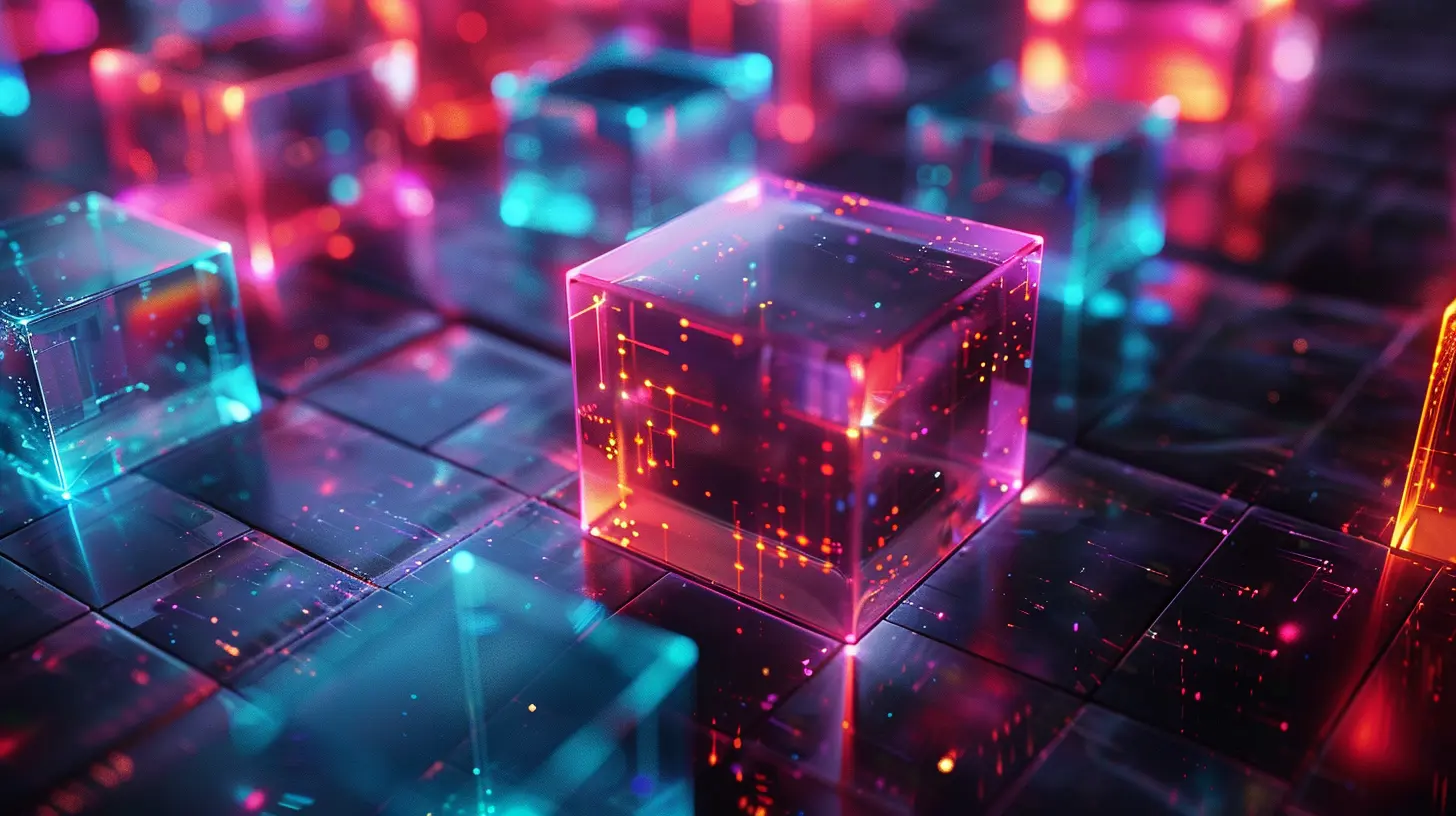
Ownership and Authenticity: The Game Changer for Creators
One of the biggest challenges content creators face today is maintaining ownership of their work. We’ve all heard horror stories of artists who’ve had their work stolen or creators who’ve had their content used without permission. Blockchain is stepping in to solve this problem in a big way.NFTs: The New Frontier
You’ve probably heard of NFTs (Non-Fungible Tokens)—those digital assets that everyone from artists to musicians are using to sell their work. NFTs are powered by blockchain, and they essentially act as a certificate of authenticity. When a creator releases an NFT, they’re saying, “This is the original version of my work, and here’s proof it came from me.”For creators, this is a game changer. It means they can create and sell unique pieces of content that are verifiably theirs. Think of it like a digital autograph. And because of blockchain, this proof of ownership can’t be faked or altered.
But it’s not just about selling art or music. Writers, photographers, and even video creators can tokenize their content as NFTs. This not only adds a layer of protection but also creates a new revenue stream.
Fighting Piracy with Blockchain
Piracy is a massive issue in the content world. Whether it’s pirated music, movies, or written content, creators often find themselves losing out on potential revenue. Blockchain offers a solution by making it easier to track where content is being used and by whom. If your content is stored on the blockchain, any unauthorized use would be immediately visible and traceable.Imagine being able to see exactly where your work is being shared or sold. That kind of transparency could significantly reduce piracy and ensure creators get paid for their hard work.
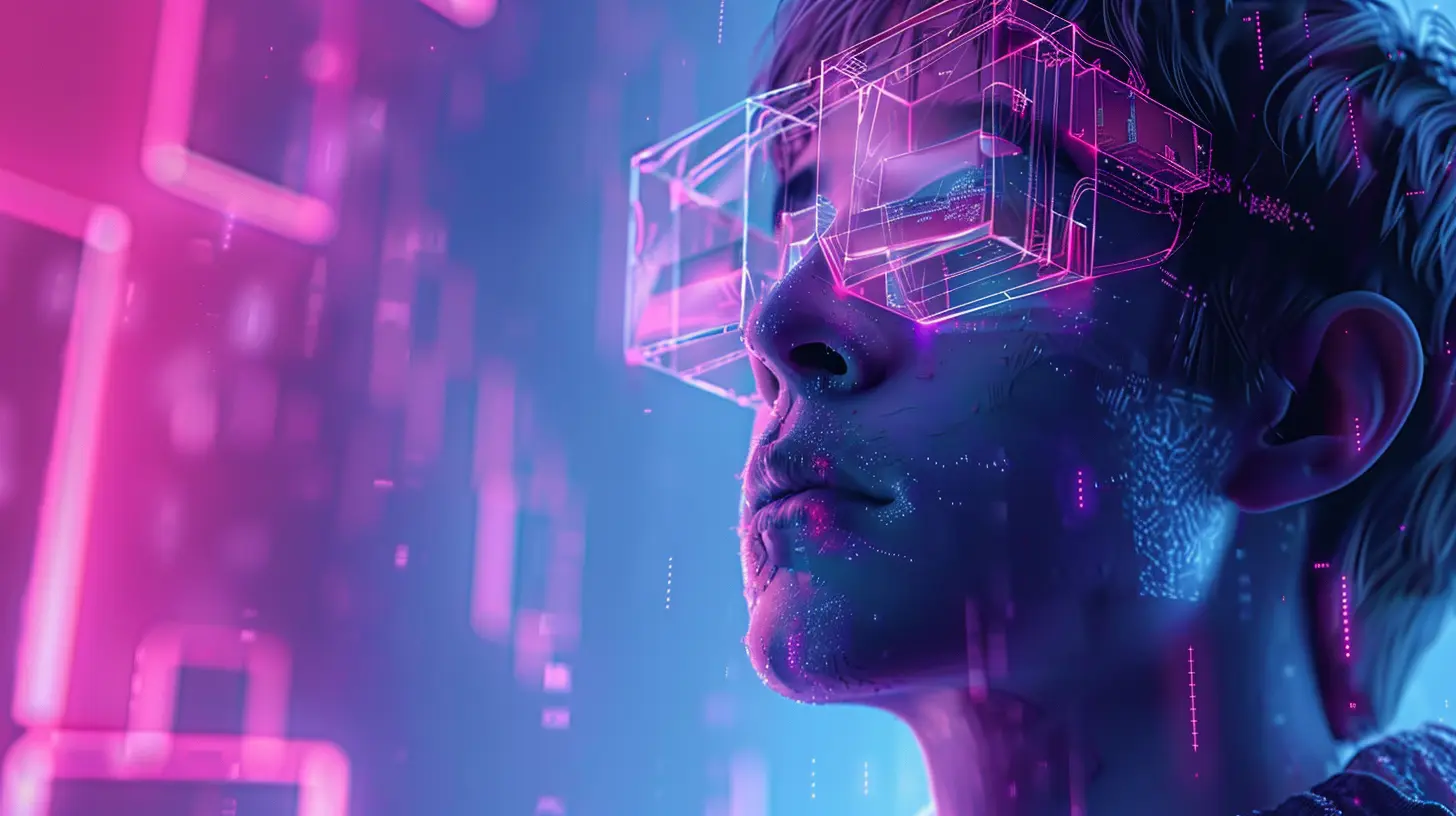
Fair Compensation: Cutting Out the Middlemen
Let’s talk money. One of the biggest frustrations content creators face is income inequality. Whether you’re a YouTuber, a musician, or a writer, you probably know that platforms take a huge chunk of your earnings. You pour hours into your work, but by the time the platform takes its cut, you’re left with scraps.Blockchain is flipping the script by removing the need for middlemen. Through decentralized platforms, creators can connect directly with their audience and get paid instantly—no need for a third party to take a hefty commission.
Smart Contracts: Automating Fair Payments
A core feature of blockchain is something called "smart contracts." These are essentially self-executing contracts where the terms of the agreement are written directly into code. For content creators, this means payments can be automated and transparent. You set the terms, and when someone purchases or interacts with your content, the payment is automatically triggered and sent to you.No more waiting for payouts at the end of the month. No more wondering if you’re getting the full amount you deserve. Smart contracts make the process seamless and fair.
Crowdfunding and Direct Support
Platforms like Patreon have allowed creators to earn directly from their fans, but even Patreon takes a cut. Blockchain enables creators to set up a direct payment system where fans can support them without any middleman. Imagine having a wallet address where fans can send cryptocurrency directly to you—no fees, no fuss.This direct-to-creator model is empowering because it allows creators to build a true connection with their audience. Fans know their money is going straight to the person they want to support, and creators can earn more for the same amount of work.

Censorship Resistance: A New Level of Freedom
Another major issue in the content world is censorship. Whether it’s political content being taken down, artistic work being flagged as inappropriate, or simply controversial opinions being silenced, creators often find themselves at the mercy of platform algorithms and guidelines.Blockchain offers something that traditional platforms can’t: censorship resistance. Because blockchain is decentralized, no single entity controls it. This means that once you upload something to a blockchain-based platform, no one can remove or censor it.
Decentralized Platforms for Free Expression
We’re already seeing the rise of decentralized platforms like Audius for music or DTube for video creators. These platforms allow creators to share their work without fear of being de-platformed or having their content removed. It’s a new level of freedom that creators have long been craving.Of course, with great power comes great responsibility. Decentralization means that creators also have to be mindful of the content they share, as there’s no governing body to moderate or remove harmful material. But for many, the trade-off is worth it—freedom of expression is priceless.
Royalties That Actually Work
Royalties are another area where creators often get the short end of the stick. Whether you’re a musician waiting for streaming royalties or a writer hoping for a cut of book sales, the traditional royalty system is slow, opaque, and often unfair.Blockchain has the potential to revolutionize royalties. Because of its transparent nature, blockchain can track exactly how many times a piece of content has been used and automatically distribute royalties. No more waiting months (or even years) for payments. No more wondering if you’re being paid fairly.
Imagine releasing a song, and every time someone streams it, you get paid instantly. That’s the power of blockchain.
The Future of Content Creation on Blockchain
We’re still in the early days, but blockchain has already shown tremendous potential for content creators. It offers solutions to some of the biggest problems creators face today: ownership, compensation, censorship, and royalties. But what does the future hold?New Business Models
As blockchain technology continues to evolve, we’re likely to see the development of entirely new business models for creators. For instance, creators could sell fractional ownership of their work, allowing fans to invest in their success. Or, we could see the rise of decentralized autonomous organizations (DAOs) where creators and fans collaborate to make decisions about content production and distribution.Greater Collaboration
Blockchain also opens the door for more collaboration between creators. Through decentralized platforms, creators can easily collaborate on projects, split revenues automatically, and share ownership of joint creations.It’s a whole new world of possibilities, and the best part? Blockchain gives creators the tools to build it on their own terms.
Conclusion: Blockchain is a Creator's Best Friend
Content creators have long been at the mercy of big platforms and intermediaries. But with blockchain, the game is changing. It’s empowering creators by giving them more control, fairer compensation, and greater freedom of expression. Whether it's through NFTs, smart contracts, or decentralized platforms, blockchain is unlocking new opportunities for creators to thrive.We’re on the cusp of a content revolution, and blockchain is leading the charge. If you’re a content creator, now’s the time to start paying attention. The future is decentralized, and it’s looking pretty bright for creators everywhere.
all images in this post were generated using AI tools
Category:
Blockchain TechnologyAuthor:

Reese McQuillan
Discussion
rate this article
19 comments
Myles Gomez
Fascinating! How exactly does blockchain enhance creative control and revenue for content creators? Excited to learn more!
April 6, 2025 at 3:04 AM

Reese McQuillan
Blockchain enhances creative control by providing ownership and provenance of digital assets through NFTs, allowing creators to directly monetize their work without intermediaries. Smart contracts also ensure transparent revenue distribution, empowering creators to retain more earnings.
Clementine Gomez
Blockchain is not just a buzzword; it's a game-changer for content creators. By decentralizing control, it empowers artists to directly monetize their work, ensuring fair compensation and ownership. Forget outdated models—this technology is breaking barriers and reshaping the creative landscape. Embrace the revolution or be left behind!
April 5, 2025 at 2:57 AM

Reese McQuillan
Absolutely! Blockchain is redefining the relationship between creators and their audiences, ensuring fair compensation and greater control over their work. It's an exciting time for the creative community!
Duke Cross
Finally, a way for content creators to get paid without relying on middlemen who think 'exposure' is a valid currency. Blockchain: because your cat videos deserve to be worth more than a cup of coffee!
April 3, 2025 at 11:16 AM

Reese McQuillan
Absolutely! Blockchain empowers creators by ensuring they receive fair compensation directly from their audience, eliminating the need for middlemen and valuing their work appropriately.
Rayna Alexander
Great insights! Blockchain truly revolutionizes content creation by ensuring transparency, ownership, and fair compensation for creators.
April 2, 2025 at 3:34 AM

Reese McQuillan
Thank you! I'm glad you found the insights valuable. Blockchain indeed has the potential to transform content creation for the better.
Lisa Walker
Exciting times ahead for content creators! Blockchain not only adds a sprinkle of security but also empowers artists to shine brighter and thrive. Let’s embrace this tech revolution together—creativity just got a major upgrade!
March 30, 2025 at 7:24 PM

Reese McQuillan
Absolutely! Blockchain is revolutionizing the creative landscape by enhancing security and providing greater opportunities for artists to succeed. Exciting times indeed!
Kieran McKinstry
Great read! It's exciting to see how blockchain is leveling the playing field for content creators, giving them more control and fair rewards. The future looks bright!
March 30, 2025 at 4:37 AM

Reese McQuillan
Thank you! I'm glad you found it insightful. The potential of blockchain for content creators truly is exciting!
Hannah Rosales
Blockchain technology offers content creators unprecedented control and ownership over their work. By enabling direct transactions and transparent royalty systems, it dismantles traditional gatekeepers, fostering a fairer distribution of revenues. This transformative shift empowers artists and writers, allowing them to thrive in a digital economy driven by collaboration and innovation.
March 29, 2025 at 4:42 AM

Reese McQuillan
Absolutely! Blockchain is revolutionizing the creative landscape by giving artists control and ensuring fair compensation, paving the way for a more equitable digital economy.
Aubrey McIlroy
Empowering creators—blockchain unlocks endless possibilities!
March 26, 2025 at 8:53 PM

Reese McQuillan
Thank you! Indeed, blockchain is revolutionizing the creative landscape by providing transparency, security, and new monetization opportunities for creators.
Jennifer McVicar
Oh great, finally! Now content creators can bask in the glory of blockchain while they still wait for their cat videos to go viral. Progress!
March 25, 2025 at 5:17 AM

Reese McQuillan
Thanks for your comment! Blockchain is indeed a game changer for content creators, providing new ways to monetize and protect their work. Exciting times ahead!
Jonah McGehee
Great insights! It's inspiring to see how blockchain is revolutionizing opportunities for content creators, fostering transparency and fair compensation. Excited for the future of creative collaboration!
March 19, 2025 at 11:44 AM

Reese McQuillan
Thank you! I'm glad you found the insights inspiring. The potential of blockchain for creative collaboration is indeed exciting!
Oscar Carr
Great article! It’s inspiring to see how blockchain is opening up new opportunities for content creators. Empowering artists and ensuring fair compensation is what we need in today’s digital landscape!
March 18, 2025 at 4:56 AM

Reese McQuillan
Thank you! I'm glad you found the article inspiring. Blockchain truly has the potential to transform the digital landscape for artists and content creators.
Will McDougal
Blockchain technology is revolutionizing the content creation landscape by enabling direct monetization, ensuring copyright protection, and fostering transparent relationships between creators and their audiences. This decentralized approach empowers artists, reduces intermediary costs, and enhances ownership rights, ultimately transforming the creative economy.
March 17, 2025 at 5:14 AM

Reese McQuillan
Absolutely! Blockchain is indeed transforming the content creation landscape, allowing creators to connect directly with their audiences, retain ownership, and monetize their work more effectively.
Orionis Alvarez
Finally, a way for content creators to get paid without having to trade their dignity for exposure. Thanks, blockchain!
March 16, 2025 at 9:29 PM

Reese McQuillan
Thank you! We're excited to see how blockchain is reshaping the landscape for creators.
Madison Marks
In the digital dawn, creators rise, Blockchain's embrace, a canvas wide. Ownership secured, their voices ring clear, Empowered by tech, they shed every fear. Artistry thrives in a trustless design, A future where creators brightly shine.
March 13, 2025 at 11:47 AM

Reese McQuillan
Thank you for capturing the essence of how blockchain is transforming the creative landscape! It's an exciting time for creators to embrace this technology and thrive.
Zarenith McSweeney
Empower your creativity today!
March 10, 2025 at 9:33 PM

Reese McQuillan
Absolutely! Blockchain opens up new avenues for creators to monetize their work and maintain ownership. It's a game changer!
Lumen Frank
Blockchain revolutionizes content creation, ensuring fair compensation and ownership for creators.
March 9, 2025 at 12:07 PM

Reese McQuillan
Thank you! Indeed, blockchain empowers creators by enhancing ownership transparency and ensuring they receive fair compensation for their work.
Indigo McConnell
Blockchain technology is revolutionizing content creation by providing transparency, enabling direct monetization, and ensuring copyright protection for creators. This empowers artists and writers to maintain control and earn fair compensation for their work.
March 7, 2025 at 5:10 AM

Reese McQuillan
Absolutely! Blockchain offers a transformative approach for content creators, ensuring transparency, direct monetization, and enhanced copyright protection. It's a game-changer for artists and writers alike.
Raleigh McQuillan
Finally, a way for content creators to get paid without having to perform interpretive dances for their audience! Blockchain: because your cat memes deserve more than just likes and endless scrolls!
March 5, 2025 at 1:18 PM

Reese McQuillan
Absolutely! Blockchain offers content creators the opportunity to monetize their work directly, ensuring they receive fair compensation for their creativity—no dance routines required!
Thane Barker
Blockchain for content creators? Finally, a way to get paid for my questionable memes and cat videos! Take that, traditional art world!
March 4, 2025 at 5:55 AM

Reese McQuillan
Absolutely! Blockchain offers exciting new avenues for content creators to monetize their work directly, bypassing traditional gatekeepers. It's a game-changer for all types of creators!
MORE POSTS

Blockchain and Artificial Intelligence: A Powerful Combination
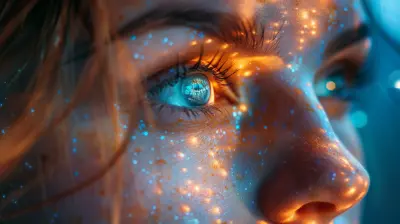
How AI is Changing Photography with Computational Imaging
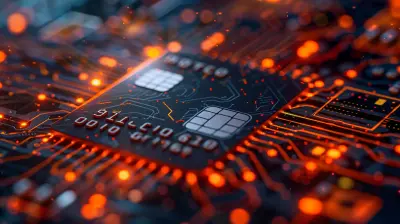
How Fintech is Changing the Future of Credit Cards
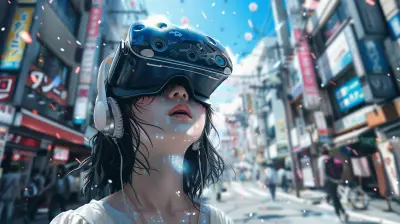
The Role of Virtual Reality in Modern Digital Transformations
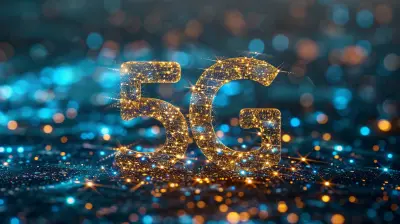
Blockchain and 5G: Driving the Next Wave of Connectivity
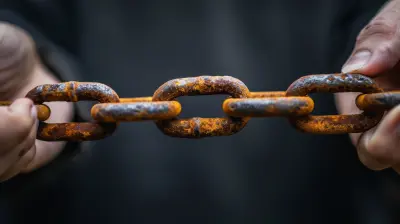
Understanding Zero-Knowledge Proofs in Blockchain Security

How Quantum Computing Could Disrupt the World of Cryptocurrencies

The Role of IoT in the Evolution of Digital Workspaces
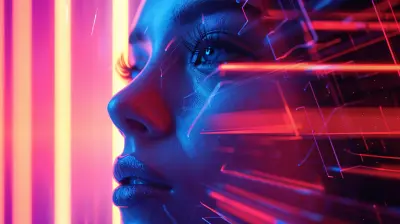
How AI is Transforming Digital Content Creation
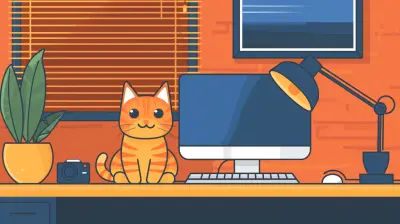
Best Video Editing Tools for Startups and Small Businesses

Digital Transformation in Media: The New Age of Streaming Services

Best Bluetooth Speakers for Outdoor Adventures